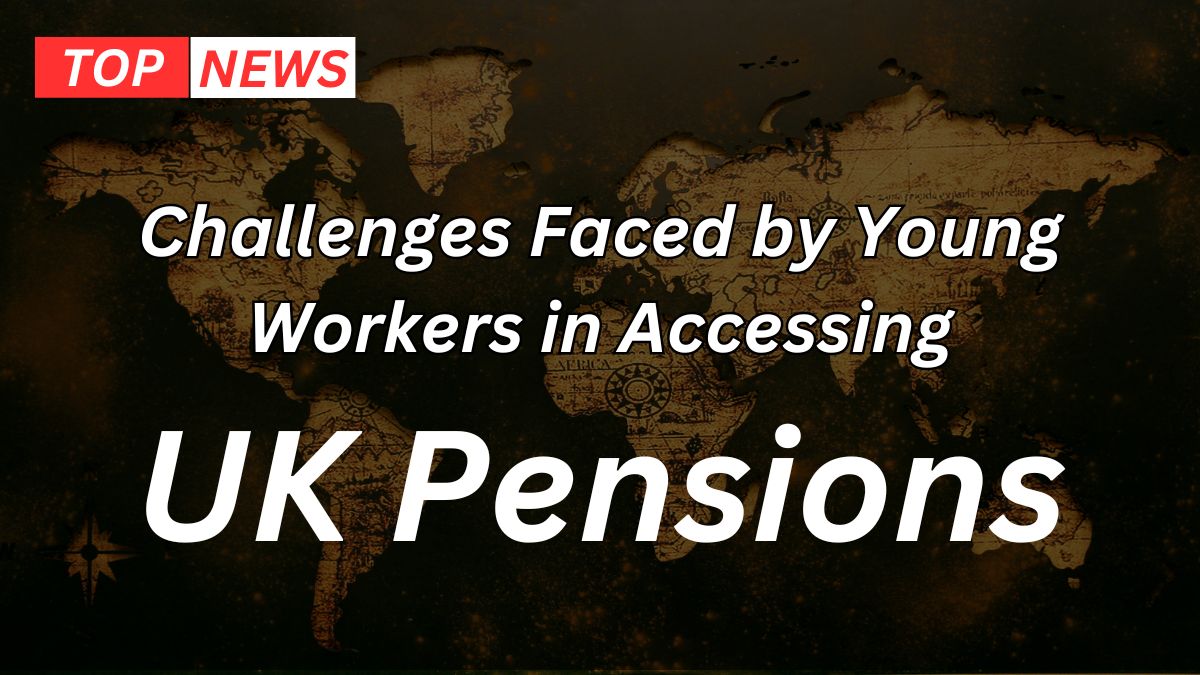Julie Hipkiss, a 62-year-old individual, finds herself in a situation where she has a mere five years remaining until she becomes eligible to receive her pension.
Engaged in a physically demanding occupation that demands prolonged periods of standing, Julie persists in her work routine despite experiencing osteoarthritis, sleep apnoea, and hypertension. However, she harbors doubts about her ability to endure such circumstances for the entirety of the designated time period.
Challenges Faced by Young Workers in Accessing UK Pensions
Hipkiss has previously attempted to secure employment that requires less physical exertion. She made the difficult decision to leave her cherished position assisting individuals with autism last year.
However, despite her best efforts, she was unable to find suitable employment options within her rural community located in the Midlands region. Consequently, after enduring a disheartening six-month period of joblessness, she was compelled to accept a new occupation that demanded nearly as much physical effort as her previous role.
She expressed her belief that she is not physically capable of working, but despite that, she was only able to find employment in the catering industry where she is required to stand for long periods of time without a break. She recently started this job in January, but she feels that she cannot continue in this role much longer.
When it comes to the idea of retiring at a later age, Hipkiss does not have a problem with it in theory. She mentioned that she would be content with having a small administrative job, but the issue lies in the lack of opportunities for retraining. She believes that the aging population’s declining health is not being acknowledged and addressed.
She also mentioned that having a support system designed for our age group would not only make us feel valued but also enable us to continue making meaningful contributions, which in turn would have a positive impact on the economy instead of allowing a significant amount of valuable life experience to go unacknowledged and unused.
Hipkiss mentioned that despite her knee being in such a deteriorated state that she struggles to walk on certain days, her situation is not deemed severe enough to be deemed incapable of working or to be prioritized for a knee replacement by the NHS.
She expressed that in order to be placed on the waiting list, she would need to meet an extremely demanding criteria that declares her unsuitable for work.
However, even if her condition worsens to the extent that she meets this criteria, she would still have to endure a two-year wait to receive the necessary assistance. Moreover, she emphasized that having such a substantial gap in her employment history during her mid-60s would likely result in her being deemed unemployable.
Hipkiss believes that if the retirement age is extended, it should be tailored to individuals’ health conditions. She argues that if she were required to work until she was 71 years old, considering her current state of health and the available job options, her life expectancy would be diminished, with the likelihood of her passing away at the age of 72.
There is a pressing need to address and establish a fair and equitable retirement system that ensures everyone is afforded an equal amount of time to savor the joys of life after their working years.
It is reasonable to propose that individuals who are in good health and engaged in non-physically demanding occupations should be able to extend their working years, thus granting them an ample span of post-retirement life to relish.
However, it is important to acknowledge that this scenario may not be applicable to individuals such as myself. It is crucial for the system to acknowledge and accommodate the diverse circumstances and needs of each individual when determining retirement policies and guidelines.
Terry Kirton, hailing from the southern region of Wales, shares his agreement with the statement. As a dedicated caregiver for his 97-year-old father, Rod, Terry depends on the monthly carers allowance of approximately £300 to sustain their livelihood. However, in light of recent escalations in the overall cost of living, Terry finds himself facing a significant financial shortfall.
He explains that his father, in his advanced age, requires adequate warmth and comfort, which unfortunately comes with an increasingly steep price tag. The expenses associated with maintaining a proper level of warmth for his father have surged beyond what Terry’s current income can cover, leaving him in a precarious situation.
In order to bridge the financial gap, Kirton is contemplating the option of withdrawing a portion of his pension once he reaches the age of 55 in September. However, despite this potential solution, he expresses uncertainty regarding his ability to sustain himself financially with the remaining pensions should he live up to the typical retirement age.
He expressed his belief that the issue of age and retirement has not been thoroughly considered. Sharing his personal experience as a nurse, he found it difficult to envision himself continuing to work on the wards well into his late 60s or early 70s. He questioned whether the government also expects individuals in physically demanding professions such as builders, manual workers, and firemen to carry on working until the age of 70.
